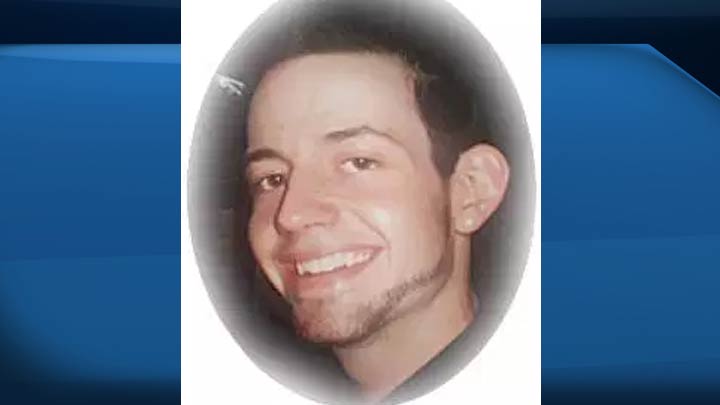On Oct. 14, 2016, Dylan Phillips’ parents watched in horror as their 26-year-old son died on their kitchen floor after being shot by an intruder.

Shaylin Sutherland-Kayseas, a member of the Terror Squad, was the one who pulled the trigger. She was convicted of second-degree murder in September.
A conviction carries a life sentence, but the big question argued in a Saskatoon courtroom on Tuesday is when she should become eligible for parole, with the Crown fighting for a term of 15 years, and the defence seeking the 10-year minimum.
“It was planned, she went with two other gang members, they did a home invasion, she also had a loaded prohibited weapon with her,” senior Crown prosecutor Melodi Kujawa said.
“She had firearms prohibition order so she wasn’t even suppose to have that gun with her.”
The Crown argued what’s worse is Dylan’s mother witnessed everything, including her son’s murder, and when the parents attempted to save him they were assaulted by the gang members.

Get daily National news
“Coupled with the record, lack of remorse – all of those go into the equation when trying to decide what we think is the appropriate parole ineligibility,” Kujawa said.
In court, Dylan’s family wept in the front row as four victim impact statements were read.
They spoke of the void Dylan’s death has left in their souls and how guilt is a huge part of their grief.
When asked if she would like to say anything, Sutherland-Kayseas told court she was remorseful but that she might not appear that way after being taught to never show her feelings.
Justice Shawn Smith noted Sutherland-Kayseas’ Gladue report was a “textbook resume for a gang member.”
“It was just a history of family violence that perpetuated itself in Shaylin’s upbringing,” defence lawyer Jessie Buydens said.
At 20-years-old, court heard the accused has a limited education somewhere between grades 6 to 10. She had a traumatic childhood, witnessed domestic abuse and was sometimes injured as the result of coming to her mother’s defence.
She had a transient childhood moving from foster home to foster home where she was subjected to emotional, physical and sexual abuse.
“She’s never had the benefit of getting an education, doing drug addiction treatment, doing programming, grief counselling, all of those sorts of things,” Buydens said.
“I think with the benefit of pro-social positive supports, I think she can be reformed for sure.”
Her fate is now in the hands of the judge who will deliver his decision on Nov. 30.
The trial
At trial, the Crown tried to prove the accused did the killing on behalf or in association to the Terror Squad which would have elevated the conviction to first-degree murder.
It argued the accused, along with two others, went to Phillips’ parents’ home in the 1400-block of Avenue G North in Saskatoon to rob the Phillips. It was alleged that he was selling drugs on Terror Squad turf, although there is no evidence of this.
- How Ryan Wedding went from Olympian to alleged drug lord wanted by FBI
- Mexican authorities seize motorbikes allegedly owned by fugitive Ryan Wedding
- Man facing murder charges after couple dies in shooting on rural Alberta road: Grande Prairie RCMP
- 15 injured in stabbing at chemical plant in Japan, arrests made
The Crown said Sutherland-Kayseas was on a “mission” for the Terror Squad to “tax” Phillips and made “council” for the killing.
Phillips official cause of death, a bullet that passed through his heart and lung from the sawed-off rifle Sutherland-Kayseas was armed with when she entered the home.
Sutherland-Kayseas took the stand in her own defence saying she was high on crystal meth when she accidentally shot Phillips when he lunged at her.
However, the judge didn’t find her testimony credible and also wasn’t convinced beyond a reasonable doubt that the killing had been done on behalf of the Terror Squad and found her guilty of second-degree murder.










Comments